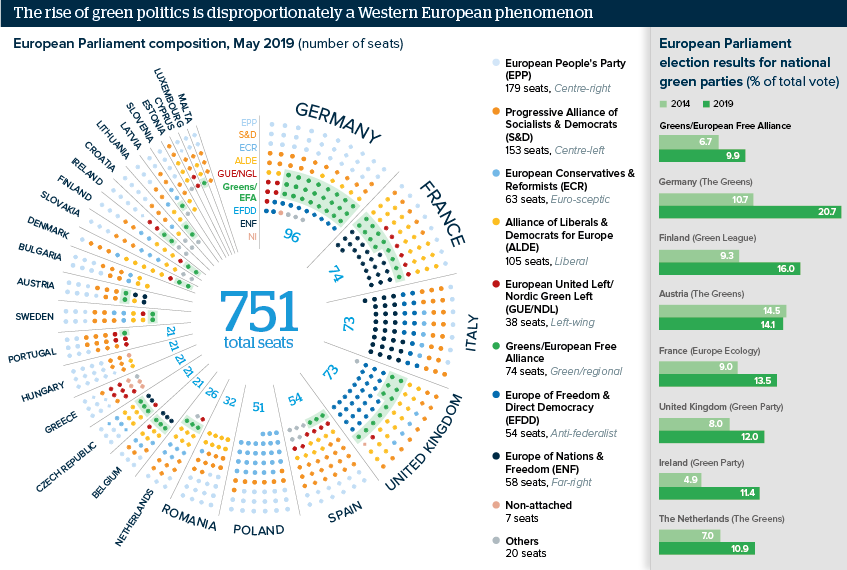Green surge risks deepening Europe’s fault lines
As climate change issues moves to the centre, affordability risks alienating the ‘left behinds’ of the past decades
Source: European Parliament
Outlook
With the European People’s Party (EPP) and Socialist & Democrats no longer commanding a parliamentary majority, the Greens will be important players in majority-based politics.
Coincidentally, climate change has become a mainstream political issue, policies such as carbon tax and increasing budget spending on climate change topping the EU agenda.
Nevertheless, aligning future environmental policy with incentives for poorer regions will be one of the greatest challenges for policymakers in coming decades. In particular, almost all right-wing populist parties are sceptical about prioritising climate change and will benefit if there are further economic costs from global initiatives.
Impacts
- The European Commission seeks to remove veto powers for issues such as climate taxes, but the proposal will likely be vetoed.
- Given the growing regional divide in the EU, climate change action will likely be faster at the national level than at the EU one.
- Another euro-area crisis would scupper ambitious climate change proposals, especially in Southern, Central and Eastern Europe.
- Green parties’ reservations on free trade agreements will alienate several centrist parties, especially in the EPP.
See also
- Climate will alter political competition in Europe - Jul 4, 2019
- Carbon capture may be key for decarbonising Europe - Jul 3, 2019
- Finland's EU presidency will focus on the environment - Jun 7, 2019
- Prospects for the EU to end-2019 - Jun 3, 2019
- More graphic analysis
